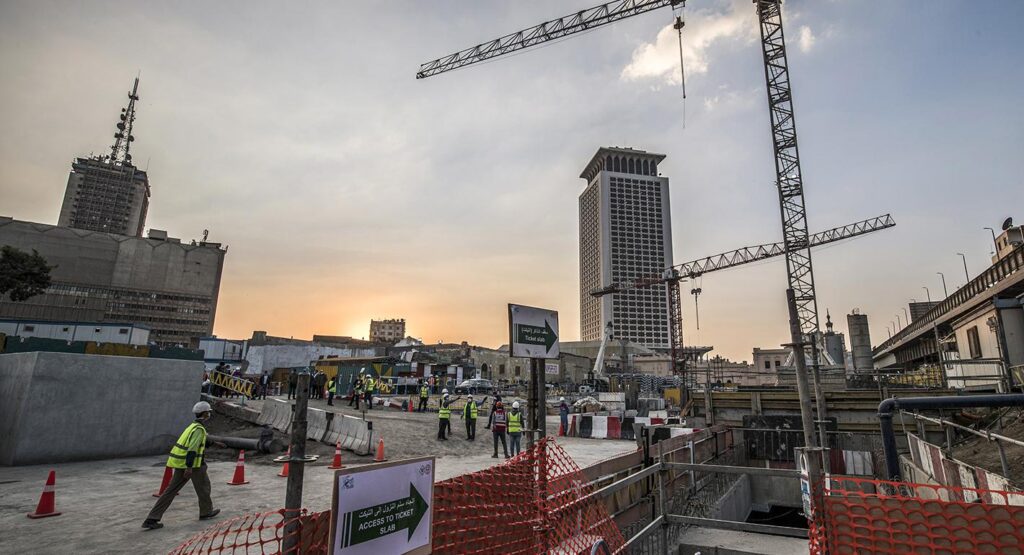The recently publicized draft State Ownership Policy (SOP) from the Egyptian Government has raised several crucial questions regarding its practical application, specifically in relation to the military’s business operations and substantial role within the nation’s economy. Though the preliminary document did not touch upon these concerns, they have been addressed in the finalized SOP and the official Memorandum of Economic and Financial Policies (MEFP), demonstrated through the inclusion of all military businesses under the same regulatory and governance guidelines as other public sector bodies.
However, the introduction of these new provisions has raised questions regarding the government’s capacity and political will to enforce them, considering the military’s diverse and established economic activities. Similarly, concerns linger as to whether the SOP and MEFP can comprehensively address the military’s vast hold over Egypt’s economy without entailing inevitable contradictions between stated commitments and on-going military actions.
The military’s extensive influence within non-strategic sectors is suggested to be neutralized under the MEFP. Still, loopholes within the document’s identification of ‘strategic’ sectors could allow continued and even increased military control over various economic sectors. This dominance is further expanded in strategic sectors, perpetuating a system of military control that is not subject to the same regulatory and enforcement actions under the SOP and MEFP.
Despite the introduction of the new policies, proposed steps that could help balance economic activity among civilian markets, the private sector, and the military, likely won’t quell the military’s economic overreach. Whether it’s further cementing its control through new business ventures or continuing to launch unprofitable enterprises, there are clear indications that the military intends to continue its current economic trajectory.
Notably, this economic expansion continues despite calls from the International Monetary Fund, amongst others, for transparency and a clearer balancing of economic control. Cairo remains in the grip of a deepening economic crisis. As such, continued military dominance could deepen the economic hardships for private sector businesses, creating a monopolistic market plagued with low dynamism and segmentation.
However, without political will or the legislative teeth to enforce policy, the prospects of realistically balancing military and civilian engagement within Egypt’s economy appear dim. Consequently, despite the outlined SOP and MEFP, the Egyptian military’s seemingly untouchable economic hold remains guarded by systemic loopholes and a lack of enforceable oversight.
